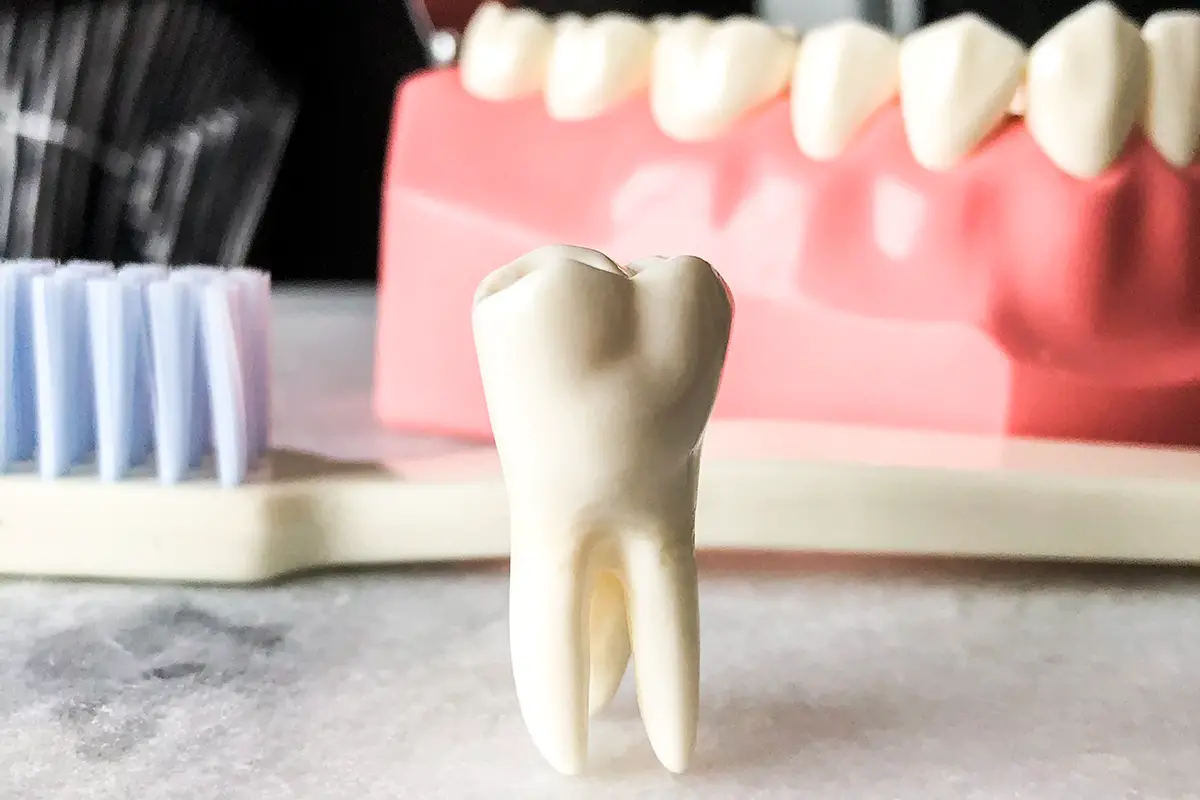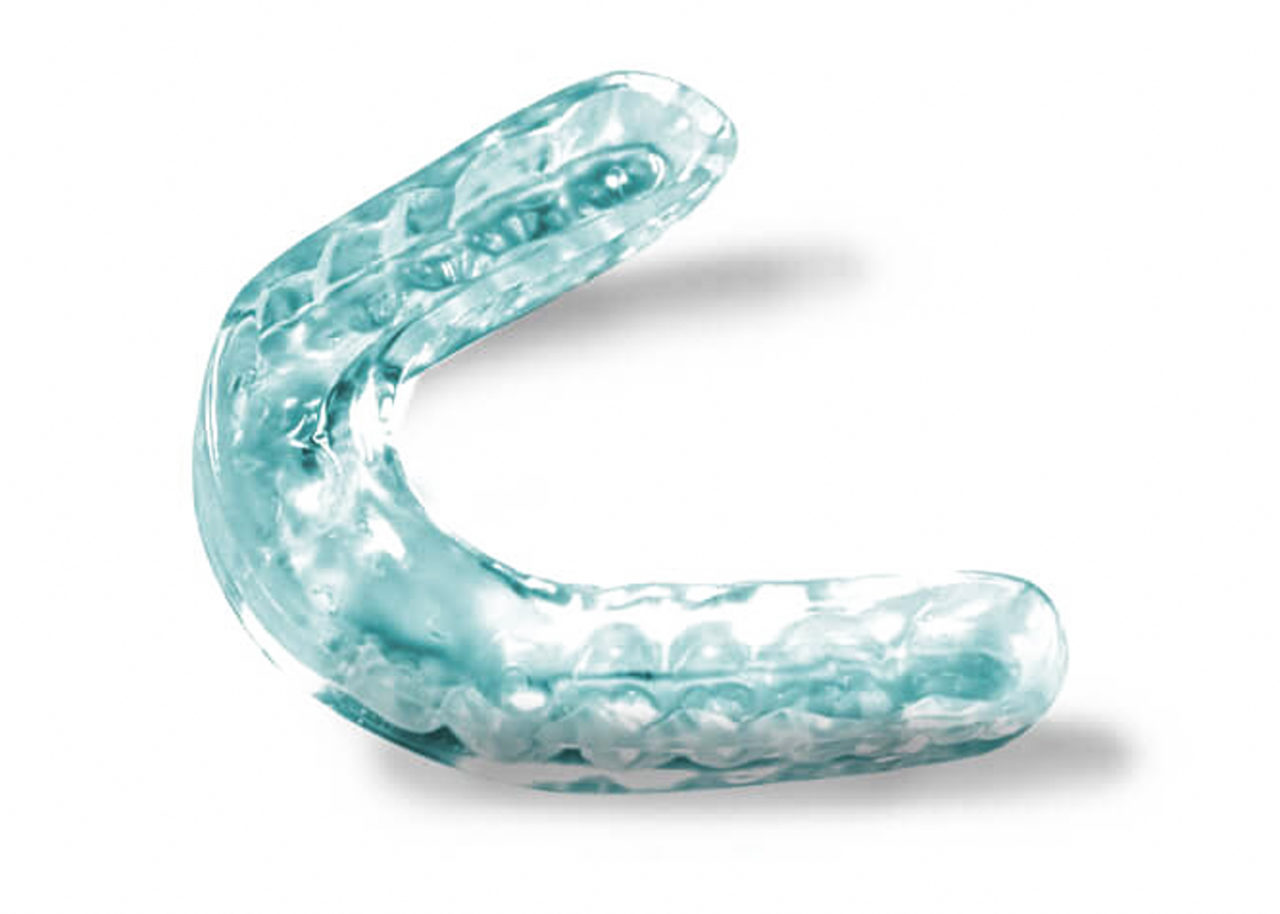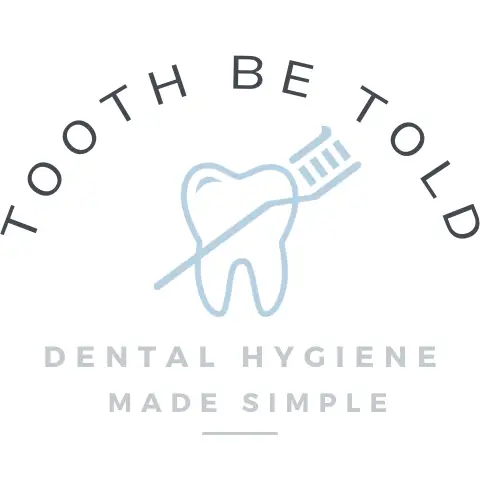
When my patients first sit down in my chair, after we briefly catch up, I ask them if they have any issues or complaints with their mouths. Sometimes my patients will complain about a toothache, and they ask me why their toothache hurts more at night.
A toothache hurts more at night because more blood flows to the brain while lying horizontally, increasing pressure and throbbing in the tooth. Furthermore, our brains are not distracted and will focus on the hurting tooth. Grinding, clenching and food stuck between teeth can exacerbate tooth pain.
In this post, I dive into more details about why a toothache hurts more/exclusively at night, the causes of toothaches and tips and tricks I give my patients to help relieve nighttime toothaches!
Why is a toothache worse at night? 5 Reasons!
There are many reasons why a toothache is worse at night. Especially when we are so tired and require the much-needed rest after a busy day, a toothache that gets worse at night can be debilitating in more ways than one.
I once cracked a tooth on a popcorn kernel, and the pain was unbelievable, and I was unable to sleep, eat or do anything! I can empathize with you if you are currently experiencing a toothache, and I hope I can help you!
Below you can find five reasons why a toothache is worse at night.
1. Lying down increases blood flow and blood amount to the head and neck
During the day, we typically stand or sit upright, and our blood is flowing throughout our body and away from the head and neck.
When we lay down in a horizontal position, our bodies do not have to work as hard to pump the blood to our head and neck; therefore, more blood flows to the head, creating more pressure, especially for an already aching tooth.
The aching tooth will become much more apparent, and you can feel throbbing.
2. Lack of distractions to keep your mind occupied
Sometimes I lay in bed, trying to fall asleep, and the smallest noise or feeling in my body becomes the center of all my attention, and I can’t focus on anything else, even counting sheep.
When we are lying in bed, the lights are off, and there is a total lack of distractions and things to stimulate our senses, pain can become paramount.
We think of nothing else except for the source of the pain. Lack of distractions can make toothaches even more apparent at night.
3. Teeth grinding and clenching

Teeth grinding and clenching occur primarily at night and can cause trauma to the nerves of the teeth and wear away precious enamel, exposing the inner tooth surface, which can contribute to pain.
When teeth grind and clench together, there are about 70 pounds per square inch of force when the teeth bite together. This force can traumatize the tooth and lead to a toothache.
Dental night guards are recommended for wearing at night to prevent this trauma from occurring to avoid aching teeth and irreversible damage to the entire mouth.
Read Now: Is a Top or Bottom Night Guard Better? Hygienist Explains!
4. Food stuck in between teeth and gums
Sometimes, people eat before they go to bed without effectively cleaning their teeth and gums (including flossing), or food can get stuck and evade the floss, causing discomfort.
Certain foods can really aggravate and create pressure between the teeth and gums, causing a toothache.
These foods are usually more fibrous and harder for the saliva to break down. Some examples of these foods are; meats, nuts, popcorn, seeds, skins of vegetables (example: peppers and tomatoes), grains and corn.
The stuck food will put pressure on the tooth and cause inflammation of the gums and periodontal ligament (think of tiny springs that hold the tooth in the socket similar to a trampoline). If the food stays there and more pressure builds, a toothache can occur.
Read Now: 10 Ways How to Get a Popcorn Kernel Out of Your Gums
5. Eating and drinking right before bed
Eating/drinking right before bed is similar to having food stuck, but not quite. It’s not just about food getting stuck. It is about what was consumed. Sometimes we all crave a little late-night snack that can initiate tooth pain.
Trigger foods and drinks include anything that is; sour, sweet, acidic, cold, and/or hot, which can trigger the tooth’s nerve. This happens most often when a cavity, root exposure and/or the tooth’s nerve is aggravated.
When the tooth’s nerve is aggravated, these triggers can cause a toothache for minutes or hours.
How can I stop a toothache at night?
Please, see a dental professional ASAP to determine the cause of the pain. Nothing on the internet or virtual treatment will give you a complete answer.
The dental professional may take an x-ray to rule out abscesses and other oral conditions. A physical exam is so so so important!
Some causes of dental pain/toothache will not go away on their own and will continue to get worse, potentially causing severe health issues.
In the meantime, if you are waiting for an appointment, and need to help relieve the pain, below are some tips that I give my patients to manage their pain and hopefully find some relief so they can get some sleep in.
Take an NSAID (non-steroidal anti inflammatory drug)
NSAID’s such as ibuprofen (Advil)(do not take these without doctor’s consent) will help to reduce the inflammation that may be causing the toothache.
You may need a higher dose to be more effective, but read the directions for use on the product packaging or ask your dentist/doctor for dosing amounts.
Take acetominophen (Tylenol)
There are many studies (here is one) that explain the efficacy of using both ibuprofen and acetaminophen combined to reduce acute pain in the mouth.
The studies also show that the combo is more effective than prescription pain medications! It is pretty unbelievable how effective it is.
Again, do not take these without the doctor’s consent.
Elevate your pillows while sleeping
As I previously mentioned in this post, lying down can cause more blood flow and pressure to the head and neck, worsening the toothache.
Layer some pillows on top of each other so you are somewhat upright when you lay back. I’ve had some patients even sleep in a recliner chair! Find an upright position that works for you.
Floss and brush teeth
Flossing and brushing will help remove the soft deposit (plaque) and any food that may be stuck, putting pressure on the teeth, or aggravating a cavity or exposed nerve.
Use some thicker floss if available, and you can even tie a knot in it to help get food unstuck.
Clove oil
Clove oil is not just a gimmick. It actually works.
There is a substance in clove oil called eugenol, which has anti-inflammatory and analgesic properties to help with tooth pain.
It has been used for over 300 years and is still used in some dental products we use in the office!
Clove oil can be placed on the end of a cotton bud/Q-tip and applied gently around the affected area. Let it sit for 5-10 minutes, and repeat every few hours if needed.
I ALWAYS recommend using high-quality food-grade clove oil. It is so important to use a safe and therapeutic-grade product. Here is a Therapeutic Grade 100% Pure Undiluted Clove Essential Oil on Amazon I highly recommend!
on Amazon I highly recommend!

Warm salt water rinse
Warm salt water rinses are a very effective and safe way to reduce inflammation and promote healing in the mouth. They have been used for ages, and rightly so. When something isn’t broken, don’t fix it!
The concentration and instructions for use are critical! I made a dedicated post for a salt water rinse recipe below that will give you the exact concentration of salt to be therapeutic.
Read Now: Salt Water Mouth Rinse Recipe
Ice pack/cold compress
Using an ice pack and cold compress will help reduce inflammation reduce some pressure and reduce pain from the toothache. Never use heat on your mouth/face for a toothache!
You could even drink ice water (if it doesn’t trigger more sensitivity) to help soothe the area.
11 of the most common causes for nighttime toothaches
Toothaches, in general, can have many causes; the following is a long list of causes of tooth pain during both the day and night time.
- cavities
- gum disease
- broken/cracked teeth
- impacted teeth (example; wisdom teeth)
- clenching and grinding
- infection (abscess/sinus)
- build up of calculus (tartar)
- lost filling
- impacted food debris
- trauma to the mouth/jaw (example being hit)
- pulpitis (inflammation of the pulp chamber where the nerve of the tooth lives)
I hope you have found this post helpful, and I hope you are not in too much pain.
Have a good day!
Holly 🙂
